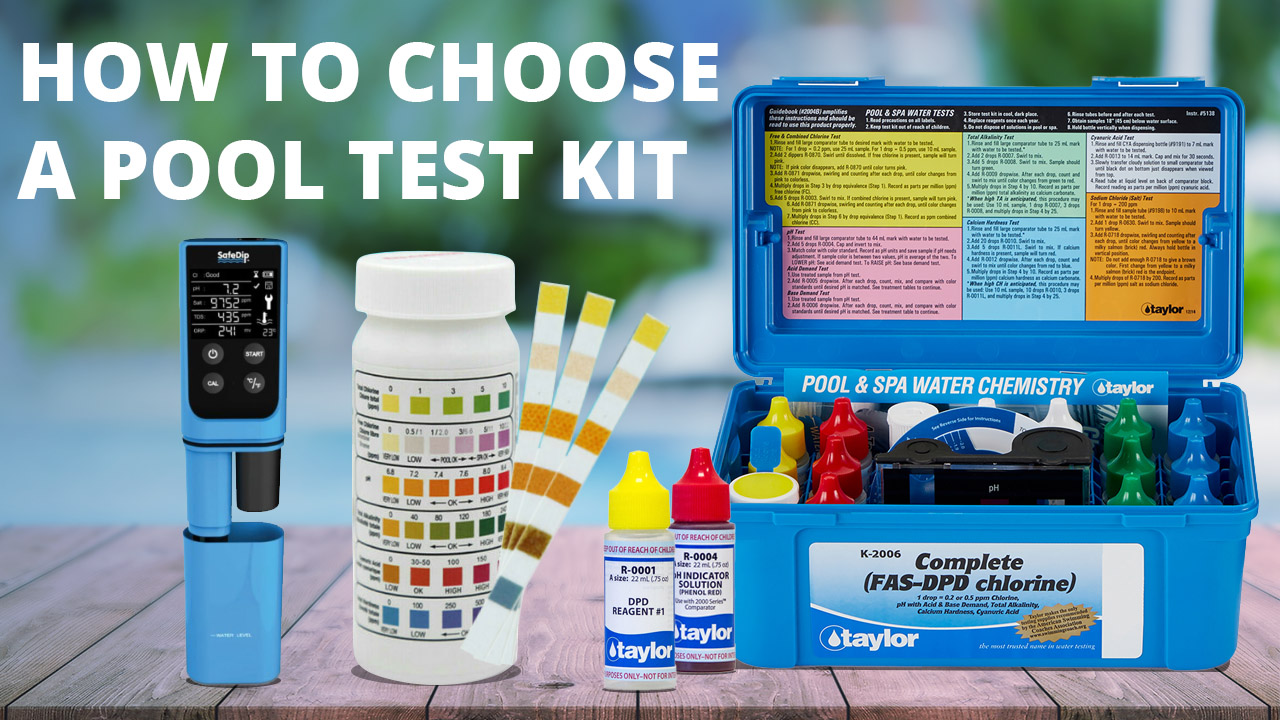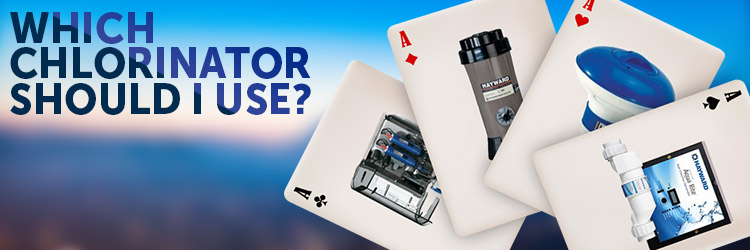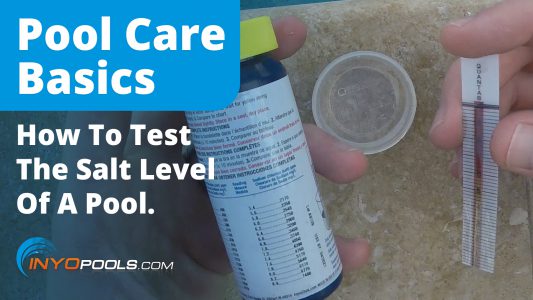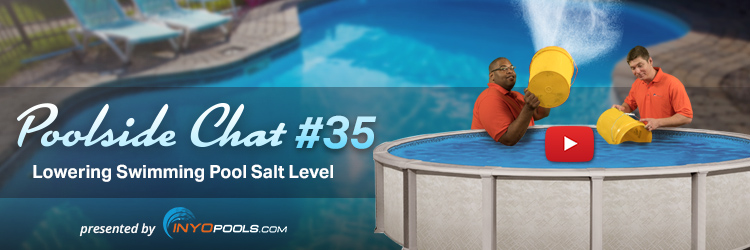As a pool owner, it is important that you consistently test and balance your water. Whether you take a water sample to your local pool store or use a test kit at home, it is essential to stay on top of your chemical levels.
If your water has ever turned green, you understand the amount of money and time you spend trying to clear it. In this article, we go over the important factors to consider when choosing a pool testing kit.
Things To Consider Before Buying
How Easy Is It To Use?
One of the first things to consider before purchasing your testing kit is usability. Ask yourself, “Is this something that I feel comfortable using myself?” More importantly, “Are the results easy to read?” In our experience, the color-coded tests seem to be easier for pool owners to work with.
How Accurate Is The Test?
If the test isn’t accurate, throw the whole test kit away. Seriously. An inaccurate testing kit does more harm to your pool than good. Your best bet to avoid inaccurate test reading is to purchase one from a reputable manufacturer or retail store.
If you should ever run into a situation where you question the validity of your testing kit, take a water sample to your local pool store. In most cases, they can provide a free water sample test for you that you can compare your testing results to.
How Thorough Is The Test?
Before purchasing a testing kit, you first need to determine what levels you want to be tested. This answer may differ from pool owner to pool owner. As you may realize, certain kits test only certain things. Ideally, you want an all-inclusive one or a single test that serves all of your needs.
A good, standard test typically tests for chlorine or bromine and your pH. It will also include instructions and the recommended ranges for each measurement. However, some all-inclusive kits will also include tests for alkalinity, calcium hardness, salt, and CYA. Make sure you purchase a kit that fits your needs.

Types Of Testing Kits
There are three types of testing kits: liquid, digital, and strips. Each test has its own set of pros and cons, which allows pool owners to choose the one that best suits their needs.
Liquid
Liquid testing kits use reagents, which is the fancy word for the liquid that comes in the droppers. Once you have your water sample, use the droppers to drop the amount of reagent that’s called for into your water sample. The amount of water and drops will vary. Make sure you follow the instructions provided within your kit.
PROS
- Easy to use
- Accurate when used correctly
CONS
- Results can be inaccurate if not used properly
- Takes time to test all of the chemical levels
- Tests expire
Test Strips
Although test strips are the easiest option to use, they also can be mildly inaccurate. Test strips can be tainted and they do not work after their expiration date. Each strip contains three to six treatment squares. Each square performs a different type of test. To use, you simply place a small amount of water on each strip and wait for the results.
Each test includes a color-coordinating chart that shows you the results based on the shade of color your strip turns to. Most test strips test for free chlorine, bromine, pH, and alkalinity.
PROS
- Easiest test to use
- Faster to use than liquid tests
- Fairly accurate when used correctly
CONS
- Easy to contaminate by touching or moisture
- Unreliable once test expires
Digital Tests
Similar to liquid tests, digital tests also use reagents for testing but provide much more reliable results because they are easier to read. However, if you purchase a digital tester, make sure it will give you the test results you need specifically for your pool or spa.
Digital readers typically use a probe that goes into the water or requires mixing the water with a reagent. They are also more expensive.
PROS
- Most accurate when used properly
- Easy to use and read
CONS
- Most expensive type of test
- May need to be recalibrated after time
An unbalanced swimming pool creates headaches for pool owners across the world. Do you know how you can combat an unbalanced pool? It is simple- by ensuring that you properly test and balance your water weekly.
If you do not own an at-home testing kit, we highly recommend you do so this season. It can be a pool saver when your local pool store or pool guy is unavailable.











